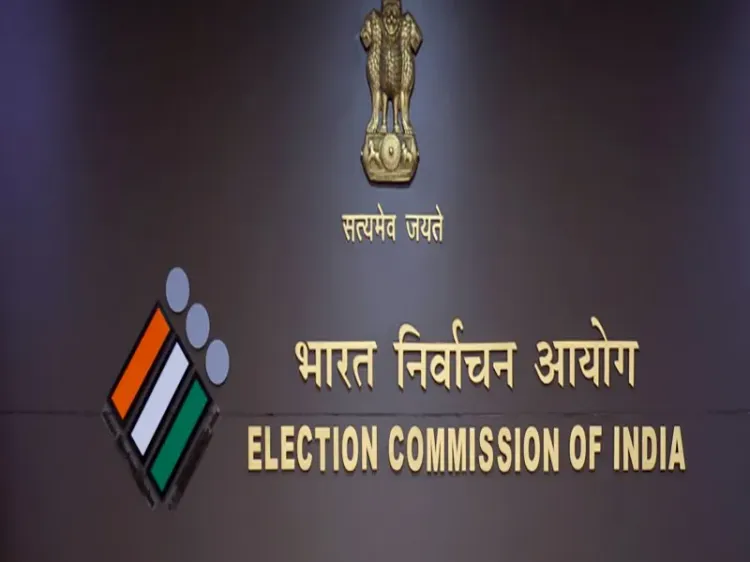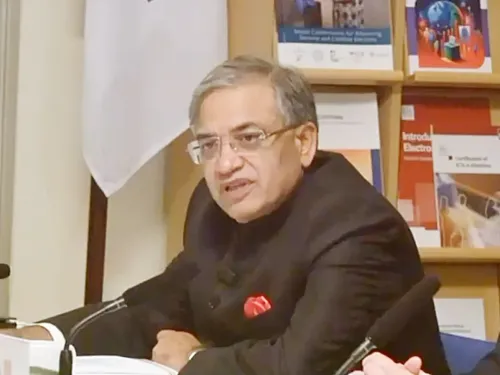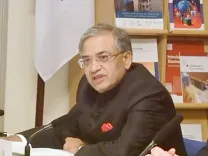Did ECI Respond to Rahul Gandhi's Allegations on Electoral Roll Revision in Bihar?

Synopsis
Key Takeaways
- The ECI firmly refutes allegations from Rahul Gandhi regarding electoral roll revision.
- Special Intensive Revision (SIR) targets missing names from 2003 electoral rolls.
- 2.9 crore voters must provide proof of citizenship to remain registered.
- The ECI emphasizes transparency in the electoral process.
- Political parties are intensifying scrutiny of the electoral revision.
New Delhi, Aug 2 (NationPress) The Election Commission of India (ECI) has countered the allegations made by Congress leader Rahul Gandhi. On June 12, the ECI sent a letter to Gandhi, referencing an article published in a prominent media outlet on June 7, 2025.
In its statement on the official X handle, the ECI declared: “The entire electoral process is managed in a decentralized manner at the Assembly constituency level, engaging over 100,186 Booth Level Officers (BLOs), 288 Electoral Registration Officers, 139 General Observers, 41 Police Observers, 71 Expenditure Observers, and 288 Returning Officers appointed by the Commission. Moreover, 1,08,026 booth-level agents were designated by national and state political parties, including 28,241 from the Indian National Congress (INC) across Maharashtra.”
The Commission has rejected all accusations made by Gandhi concerning the ongoing Special Intensive Revision (SIR) of electoral rolls in Bihar.
This initiative has faced backlash due to claims of procedural irregularities, arbitrary documentation standards, and the risk of disenfranchising millions of voters.
The ECI stated that during the preparation of the electoral roll for Lok Sabha 2024, both the drafts and the final electoral list were made available to political parties, including INC, and were subject to appeal under section 24 of the People’s Representation Act 1950.
Notably, very few appeals were filed across all 36 states and Union territories by INC.
Additionally, the ECI mentioned that only 8 election petitions were lodged by losing candidates from INC under section 80 of the RP Act 1951.
The ECI further stated: “Rahul Gandhi has consistently made unsubstantiated and misleading allegations, including baseless accusations of ‘Vote Chori’, threatening countless dedicated election officials nationwide. These unfounded claims seem aimed at undermining their impartial and transparent efforts, attempting to exert undue pressure on the election machinery, and even intimidating them without filing an appeal against the electoral roll.”
Initiated on June 24, 2025, the SIR focuses on individuals whose names were absent from the 2003 electoral rolls.
About 2.9 crore voters—out of Bihar’s total of 7.8 crore registered electorate—are required to provide proof of citizenship to remain on the electoral rolls. The Commission has ruled out using Aadhaar as a standalone proof of citizenship due to its susceptibility to forgery.
In response, the Association for Democratic Reforms (ADR) submitted a rejoinder to the Supreme Court, labeling the exclusion as “patently absurd” and contending that all 11 accepted documents are equally prone to falsification.
ADR also expressed concerns over the undefined verification process and the excessive workload assigned to Electoral Registration Officers, each reportedly burdened with over 3 lakh forms.
Opposition parties have ramped up their criticism of the initiative.
The Trinamool Congress shared images of residential certificates allegedly issued to a dog named “Dog Babu” and a woman named “Sonalika Tractor,” whose parents were listed as “Sawraj Taractor” and “Car Devi”.
The party asserts that such documents were accepted as valid proof during the revision process.
Trinamool MP Sagarika Ghose labeled the exercise a threat to democratic integrity and called for a parliamentary debate.
She alleged that while the revision is ongoing in Bihar, its political ramifications may extend to West Bengal.
In its directive on July 10, the Supreme Court urged the Election Commission to consider Aadhaar, voter ID, and ration cards as valid documents “in the interest of justice”.










